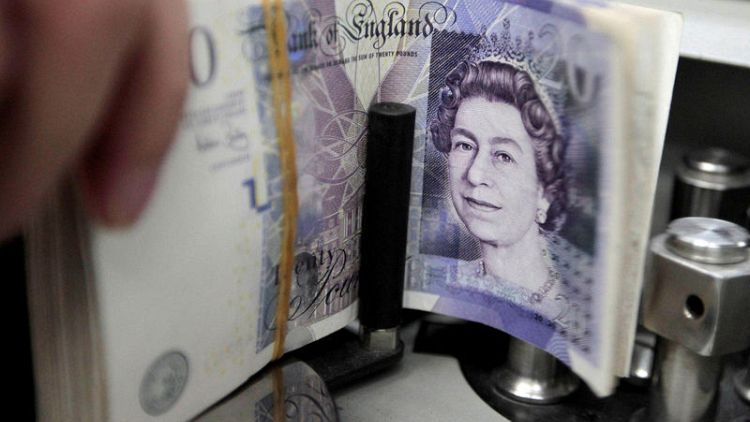By Andy Bruce
LONDON (Reuters) - British government borrowing costs plunged to record lows on Tuesday as the Brexit crisis prompted investors to seek the safety of gilts which outperformed both European and U.S. debt markets.
British lawmakers will try on Tuesday to stop Prime Minister Boris Johnson from pursuing a no-deal Brexit, a challenge that a senior government source said would prompt Johnson to call for a snap election on Oct. 14.
The 10-year gilt yield <GB10YT=RR> slumped to a new record low of 0.341% in early trading, according to Refinitiv data, and it recovered only some of its losses to stand at 0.367% as of 1045 GMT -- down 5 basis points on the day.
Although German Bund and U.S. Treasury yields also fell, the move was more pronounced in gilts, signalling stronger demand for British debt.
British yields have fallen sharply in recent months, reflecting not only gilts' safe-haven allure but also expectations that the Bank of England will be forced to stimulate the economy, through interest rate cuts and further purchases of gilts, in the event of a no-deal Brexit.
"Clearly the latest political developments are what's causing the more emphatic move in gilts," John Wraith, strategist at UBS, said.
Twenty and 30-year gilt yield <GB20YT=RR><GB30YT=RR> also fell to record lows of 0.753% and 0.858%.
At the short end, the five-year gilt yield <GB5YT=RR> fell to its lowest since October 2016 at 0.202%, while the two-year yield <GB2YT=RR> touched its lowest since September 2017 at 0.265%.
The premium that 10-year gilts hold above comparable German Bunds narrowed on Tuesday to its lowest level since Aug. 13 at 109 basis points, down 3 bps on the day.
Gilt yields could have further to fall if Britain's political crisis were to become more precarious, but this was not a one-way bet, Wraith said.
An election could lead to looser fiscal policy by the next government, a weaker pound that would boost inflation or the election of a government with a softer approach to Brexit, all of which could reduce demand for gilts, he said.
Britain sold 3 billion pounds of the 0.625% 2025 gilt <GBT0F25=>, attracting bids worth 1.84 times the amount on offer -- the weakest bid-cover ratio for a conventional gilt auction since June 25.
(Reporting by Andy Bruce, editing by Ed Osmond)



